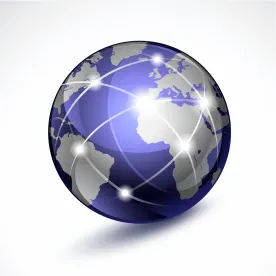The Department of State has released its 2017 Trafficking in Persons (“TIP”) Report. As with prior versions of the annual report, the State Department reviewed efforts made by more than 180 countries to address the minimum Prosecutorial, Protective, and Preventative standards necessary for effective anti-trafficking measures, as these standards are outlined in the United States’ Trafficking Victims Protection Act (“TVPA”).
The release of the report is notable because it can directly impact contractors’ diligence obligations for supply chain review under the Federal Acquisition Regulation (“FAR”) Human Trafficking Rule (located at FAR § 52.222-50). As we have highlighted in previous articles, for those contractors required to submit compliance plans to the government, such plans should be appropriately shaped to the “nature and scope of activities to be performed for the Government . . . and the risk that the contract or subcontract will involve services or supplies susceptible to trafficking in persons.” See FAR § 52.222-50(h)(2)(ii). Additionally, as set forth in a recent proposed memorandum, which remains the clearest articulation of the government’s views on supply chain diligence obligations to date (covered in a prior post), contractors are expected to take steps to “identify high-risk portions of [their] supply chain[s].”
For these reasons, movement of a particular country up or down in risk classification in the TIP Report may greatly impact a contractor’s supply chain risk profile, especially if the contractor sources a significant amount of goods or materials from that country. Even where countries are not designated under the Trade Agreements Act for direct importation and sale of goods to the U.S. government, to the extent that contractors rely on these countries for the supply of materials or components to be “substantially transformed” in the U.S. or a designated country, those contractors will bear heightened risk of non-compliance under the FAR requirement should a country fall in placement.
Although this year’s TIP Report was recently revised for increased clarity per the recommendation of a late 2016 GAO Report, it continues to classify countries by the same “Tiers,” that it has in years past. Tier 1 countries “fully meet the TVPA’s minimum standards for the elimination of trafficking,” and consequentially are considered to be relatively low risk. Tier 2 countries “do not fully meet TVPA’s minimum standards but are making significant efforts to bring themselves into compliance.” Tier 2 Watch List countries are still considered to be “making significant efforts to bring themselves into compliance,” but may have only made commitments to take action over the next year, or have yet to stem the absolute number of trafficking cases. Finally, Tier 3 countries fail to meet TVPA standards and are not considered to be taking significant steps to come into compliance, either through commitments or otherwise.
For 2017, Iceland and China each fell in placement, while Malaysia and Afghanistan moved up in placement. Per the classification standards mentioned above, Iceland is now on par with Afghanistan in terms of basic classification — both are now Tier 2 designated countries. Malaysia is now also a Tier 2 designated country, moving up in placement from the Tier 2 Watch List. The People’s Republic of China, in contrast, fell to a Tier 3 classification this year, greatly increasing its risk profile. (Hong Kong, however, remains on the Tier 2 Watch List.)
In light of these changes, and recent indications that the Trump Administration remains committed to “devoting more” to anti-trafficking programs, contractors would be advised to make sure that their supply chain compliance and diligence programs are updated to reflect the latest information on country risk profiles available from the government.






 />i
/>i

